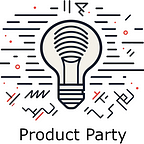Leveraging Jeff Bezos’s 70% Rule in Product Management.
If you’ve been following professional white papers or newsletters for a while, you will have heard Jeff Bezos referenced in a million different ways. While we don’t all aspire to be a billionaire like him (although…a few extra $ wouldn’t hurt), some interesting ways of working have come out over time that I find interesting. The biggest one I’ve learned about recently is the 70% rule.
Incorporating Bezos’ 70% Rule is particularly relevant in product management, where waiting for complete information can lead to missed opportunities and delays in product development and iteration.
Here’s how you can apply this rule effectively.
What is the 70% Rule?
The 70% rule, often associated with Jeff Bezos, suggests that decisions in business and management should be made with about 70% of the information you ideally want.
This approach encourages prompt decision-making and agility, recognizing that waiting for complete information can lead to delays and missed opportunities.
The principle emphasizes the importance of being decisive with substantial, albeit not complete, data and maintaining flexibility to adapt or correct decisions as more information becomes available or circumstances change.
This rule is particularly effective in dynamic environments like product management, where rapid iteration and responsiveness are key to success.
Early and Iterative Decision-Making
In product management, it’s crucial to make decisions early and iteratively.
By applying the 70% rule, you can start with a substantial but incomplete information set.
This approach allows for faster decision-making and product iterations or feature launches.
It aligns with agile methodologies, where iterative development is emphasized, and products continuously improve based on feedback and new insights.
Establishing Measures for Planning
To apply the 70% rule effectively, establish clear measures or criteria for the 70% information threshold in your planning phase.
This might include market research, customer feedback, technical feasibility studies, or competitor analysis.
Having these measures helps in objectively assessing whether you have enough information to proceed.
Justifying Iterations
While moving forward with iterations is important, enough groundwork should be done to justify these decisions.
Using the 70% rule, ensure that the decision to iterate is based on sufficient data and analysis — about 70% of what you ideally want.
This balance helps avoid hasty decisions while not getting bogged down by over-analysis.
Embracing Agility and Flexibility
Be agile and flexible in your approach.
The 70% rule requires a mindset of adapting and course-correcting as more information becomes available or as situations change.
In product management, this might mean adjusting features, re-prioritizing the product roadmap, or pivoting the product strategy based on new insights or market feedback.
Learning from Outcomes
Finally, learn from the outcomes of your decisions.
Whether a decision with 70% of the information leads to success or failure, valuable lessons must be gleaned.
This learning feeds back into your decision-making process, improving your ability to gauge the 70% threshold and make more informed decisions in the future.
Final Thoughts
By adopting the 70% rule, product managers can make more timely decisions, iterate faster, and adapt more readily to changing market needs or customer feedback, all while ensuring that decisions are grounded in substantial, albeit not complete, information.
Do you work the 70% rule into your daily life? Or do you have some other hacks related to delivery you want to share? Click the button below and leave me a comment.
Want to connect with us and chat more about the wonderful world of product? Check us out here:
Originally published at https://www.productparty.us.
